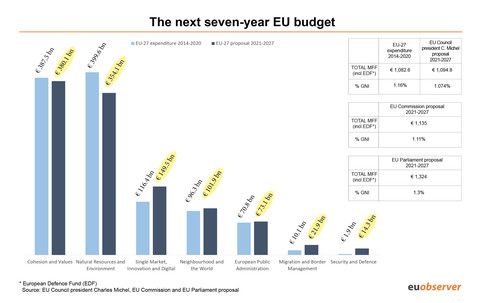The agreement, warned Rep. Barbara Lee, "leaves thousands of troops in
Afghanistan and lacks the critical investments in peacebuilding,
human-centered development, or governance reform needed to rebuild
Afghan society."
The Taliban have agreed
to sever ties with al-Qaida and other international terror groups and
sit down for peace talks with other Afghans, including a government they
have always denounced as a US puppet. In return, Washington will start a
phased withdrawal of troops.
Troop levels will be cut to 8,600 over the next 135 days and five bases will be closed. If both sides keep to their commitments, all U.S. military forces could leave Afghanistan by spring 2021, although Washington is thought to want to keep intelligence operatives on the ground fighting Isis and al-Qaida.
According to Lee, nobody should be fooled into thinking that this is a "peace" agreement.
"It leaves thousands of troops in Afghanistan and lacks the critical investments in peacebuilding, human-centered development, or governance reform needed to rebuild Afghan society," the Congresswoman said.
As peace advocates have been saying since even before the U.S. invasion took place in 2001, following the attacks of September 11, there was never a military solution to the situation in Afghanistan. That remains true today.
"Two decades of trying to bomb our way to peace have made clear: there is no U.S. military solution in Afghanistan," said Stephen Miles, executive director of Win Without War, in a statement.
While the reduction in U.S. military presence "is a welcome step," Stephens said, the agreement "utterly fails to confront the underlying logic of military occupation, lacks any strategy for long-term peace, and falls far short of accountability and justice. It is no 'peace deal.'"
Like Lee, Stephens said a deal that leaves nearly two-thirds of current U.S. forces in Afghanistan for 'counterterrorism' purposes—"bringing levels down to about where they were when Trump entered office"—cannot be considered a peace deal. While the drawdown can be considered a positive development, he said, the agreement "is far from an end to endless war—and further still from anything that would ensure stability, peace, and justice after decades of violence."
Read more at: "So-Called 'Peace Deal' Is Anything But": Critics Warn US-Taliban Deal Exposes Fallacies of Endless War Paradigm | Common Dreams News
 |
| A Fake Deal ? USA-Taliban-Afghanistan |
Troop levels will be cut to 8,600 over the next 135 days and five bases will be closed. If both sides keep to their commitments, all U.S. military forces could leave Afghanistan by spring 2021, although Washington is thought to want to keep intelligence operatives on the ground fighting Isis and al-Qaida.
According to Lee, nobody should be fooled into thinking that this is a "peace" agreement.
"It leaves thousands of troops in Afghanistan and lacks the critical investments in peacebuilding, human-centered development, or governance reform needed to rebuild Afghan society," the Congresswoman said.
As peace advocates have been saying since even before the U.S. invasion took place in 2001, following the attacks of September 11, there was never a military solution to the situation in Afghanistan. That remains true today.
"Two decades of trying to bomb our way to peace have made clear: there is no U.S. military solution in Afghanistan," said Stephen Miles, executive director of Win Without War, in a statement.
While the reduction in U.S. military presence "is a welcome step," Stephens said, the agreement "utterly fails to confront the underlying logic of military occupation, lacks any strategy for long-term peace, and falls far short of accountability and justice. It is no 'peace deal.'"
Like Lee, Stephens said a deal that leaves nearly two-thirds of current U.S. forces in Afghanistan for 'counterterrorism' purposes—"bringing levels down to about where they were when Trump entered office"—cannot be considered a peace deal. While the drawdown can be considered a positive development, he said, the agreement "is far from an end to endless war—and further still from anything that would ensure stability, peace, and justice after decades of violence."
Read more at: "So-Called 'Peace Deal' Is Anything But": Critics Warn US-Taliban Deal Exposes Fallacies of Endless War Paradigm | Common Dreams News








